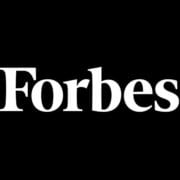Transformation within CRE: CFO, Technology, and Leadership
RealPage IMS hosted a webinar on the topic of Transformation within CRE for CFOs, Technology, and Leadership. The webinar featured 2018 CFO of the year Deanna Farnell of CGI Strategies, who joined RealPage IMS’ VP of Customer Success, Ron Rossi, to discuss trends driving disruption in the CRE industry, strategies to address market changes, and how the 21st-century CRE leader should be leveraging technology.
Watch the free on-demand webinar: Transformation within CRE: CFO, Technology, and Leadership
Trends Driving Disruption in the CRE Industry
The trends driving disruption in the commercial real estate industry fall into two main categories: people and technology. Ron stressed that modern firms are placing more focus on skills and leadership, as well as emphasized that an evolving mindset and willingness to embrace change are critical to the success of CRE firms during this time of evolution. An increase in the variety of PropTech solutions means that it is important to bring in the right tech to serve strategic purposes.
Strategies to Address Disruptive Market Changes
Next, Deanna shared strategies to address these trends and enhance the functionality of the modern CRE firm.
Hire Partners, Not Employees
According to Deanna, “You want out-of-the-box thinkers, innovators, people who know how to utilize and embrace technology solutions. People who are working smarter and not harder.” As Millennials become the majority of the workforce, it becomes more important for leaders to shift away from a subordinate mentality and toward a partnership mentality – one that values willingness to take risks over blind obedience and task completion. Hiring team members who are solution-driven and display an aptitude for learning is going to be key to success.
Ditch the Bookkeeper Mindset
The way that we think about back-office tasks is also changing. The old-school concept of a “bookkeeper” who handles accounting no longer reflects industry best practices and does not fully utilize talent within a firm. With investing in talent at the core of strategy, laying the groundwork for technology implementation requires the right team and a people-based implementation strategy. The goal here is to avoid putting people to work on repetitive or manual tasks and to maximize the amount of creative and critical thinking and time dedicated to value-add activities.
Leveraging Technology
The panelists identified and discussed several of their best practices for leveraging technology in a CRE firm.
Determine Inefficiencies
Deanna identified dissemination of K-1s and calculating Waterfall Distributions as areas of inefficiency that drove her to adopt IMS as a technology solution for her firm. She realized that the existing process of sending K-1s through email was a security risk and that generating distributions through Excel was time-consuming and prone to error. This assessment helped her determine what challenges she was looking to overcome while evaluating vendors.
Think About Personal Impact
In addition to the firm-wide impact, consider how new technology implementation will consider individual team members and stakeholders. For example, one of Deanna’s coworkers saved 16 hours of manual data entry each quarter – over the course of a year, that is more than an entire week’s-worth of time saved! Getting your team on board with a new technology helps ensure success and in turn drives client satisfaction.
Don’t Be Afraid to Say “No”
With so many options on the market, it is important to assess how well a potential technology solution will address your challenges – don’t be afraid to pass on vendors that don’t meet your criteria. In Deanna’s case, she was responsible for managing the project and its implementation, and she chose IMS as a best-fit for her firm and their needs. Says Deanna, “I like to work in an environment where I feel like I’m a partner to a process and technology, not just taking on a solution that somebody else has already thought through or felt would be good for them personally.” Prior to implementation, her team was tasked with handling 2,700 distributions in 10 days, an activity that RealPage IMS has been able to help automate and save valuable time.
Recognize Opportunity
As your firm continues to grow, it is also important to consider how you can reach new markets and populations. For example, 80% of Millennials wish the process of investing in commercial real estate was easier, and 3 out of 5 would be more likely to invest in CRE if the firm used technology. Leveraging tech solutions bridges the gap between this potential investor base and your firm by making the investment process easier and more transparent.
Tips for the 21st Century Leader
When it comes to attracting and retaining top talent, Deanna employs the “Three Cs” as outlined below:
Communication — Clear communication ensures that talent can rely on the information they are given. The right tech offers correct, concise data in a simple format and is a solid base for effective communication.
Climate Control — Trying to accommodate the environmental wants and needs of a team is always a challenge. Technology implementation increases flexibility for team members, enabling employees to work remotely or from an environment that is most conducive to success and tailored to specific individuals.
Commute — The increased freedom that tech implementation can offer is also beneficial to employees who face a difficult commute. Deanna believes that providing an environment of freedom to and respect for talent maximizes output and drives success.











